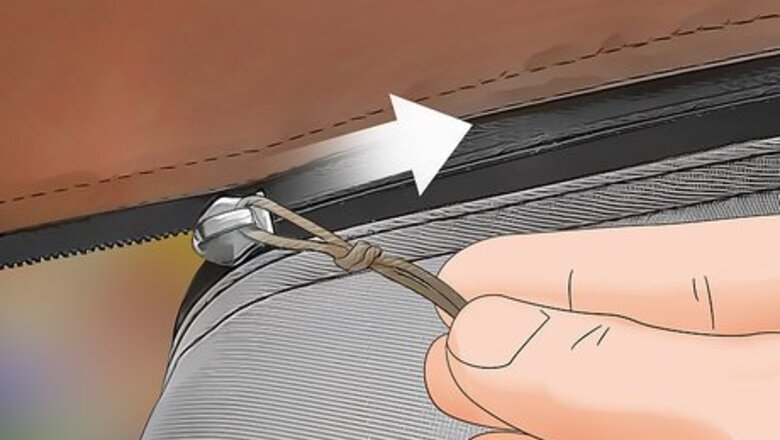
views
Using Fresh Water
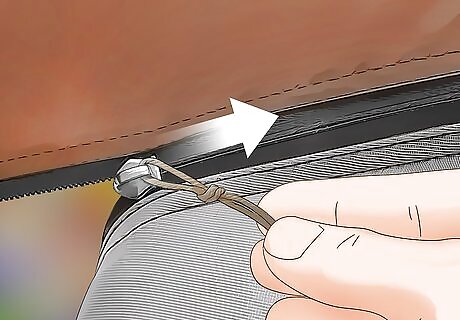
Open the zipper as much as possible. This should ensure that you use the cleaning methods in every bit of the zipper possible. Use your fingers to hold the zipper by the pull and tug up and down. Try using needle nose pliers to hold the zipper by the slider or “car” and try to move that up and down. Don't be too rough with it so that the zipper doesn’t break or get off track.
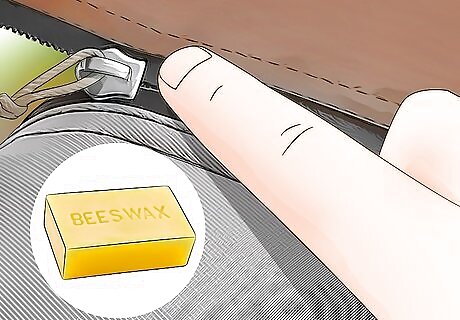
Use beeswax to loosen the zipper. If the zipper is stuck, try rubbing it with beeswax or a block of paraffin wax before cleaning it. You can find such items at health stores, hardware stores, and some supermarkets. If you’re outdoors without access to additional supplies, try using a bar of soap or candle wax to loosen the zipper, if you have one of those on hand.
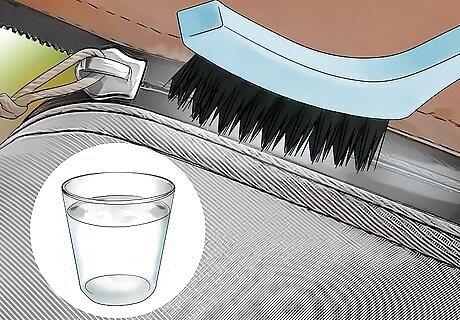
Rinse the zipper thoroughly with freshwater. Sometimes salt will dissolve in freshwater. Wash the zipper under a tap or hose. Alternately, you can use a bucket of warm water. Try using a small wire brush to scrub the zipper with water. Make sure that the brush is small enough or positioned so that the brush does not damage the material the zipper is attached to.
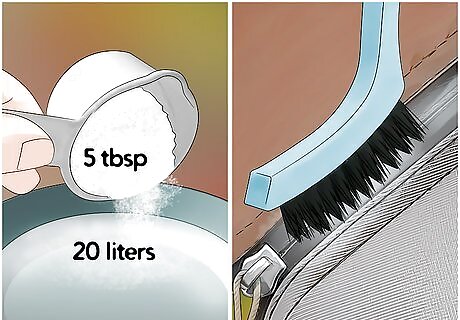
Wash the zipper with a soap solution. Use a non-detergent soap solution in a bucket of warm water. Use a stiff brush to scrub the zipper. Make a fresh soapy water solution by adding five tablespoons of soap powder to 20 liters of water. Stir it in a bucket until it’s sudsy. Dispose of any leftover solution once finished.
Using Vinegar and Other Products
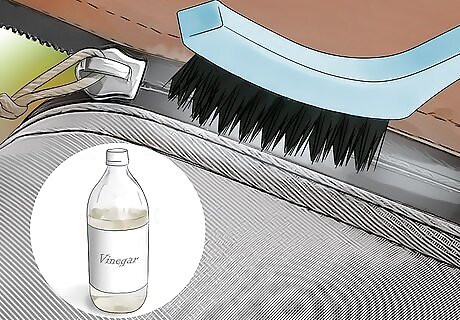
Use a soft toothbrush and vinegar. Pour white vinegar into a bowl or container. Wet a soft-bristled toothbrush in the vinegar. Rub the zipper gently but thoroughly with the toothbrush, on both sides of the zipper.
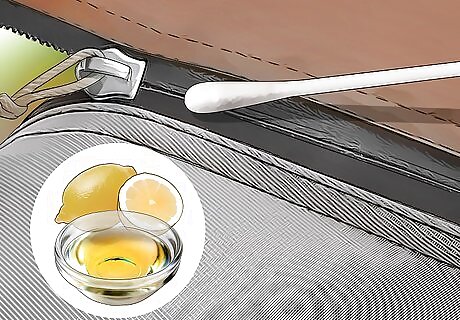
Try alternatives to vinegar. You can use cola or lemon juice. Dip a toothbrush or cotton swab into the liquid and apply it to the zipper. Let it sit for a couple of minutes. Make sure to wash the area completely with water afterwards. The phosphoric acid in cola breaks down and combats corrosion. Lemon juice contains the cleansing agent citric acid.
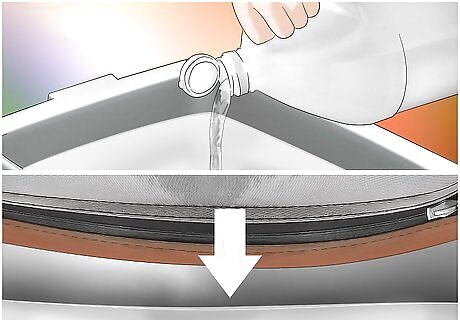
Soak the zipper in vinegar and baking soda overnight. Use a container of white vinegar or a vinegar and water solution. Add a small amount of baking soda (a sprinkle). Try to submerge only the zipper itself, if possible. If not, make sure that the material surrounding the zipper won’t be damaged by soaking it in vinegar. Either look it up or try soaking a test piece of material first. If you're having a salt encrustation issue with scuba gear, take off any parts you can that are not connected to the suit such as hooks, swivels, etc. Depending on how the zipper is mounted on your bag, you may be able to simply submerge the zipper and not the rest of the suit.
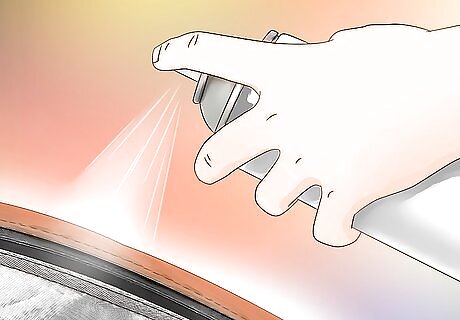
Use a lubricant made for zippers. There are various products, for example using silicone or wax, which are specifically designed for loosening stuck zippers. You can find these online, at marine supply stores, and at some auto parts stores. Typically the products are either in tubes or sold as sprays. Follow the instructions of the lubricant product. Some lubricants are applied to all parts of the zipper, whereas others are for the outer teeth only. Apply the lubricant at room temperature. Use the zipper slider a few times to fully distribute the lubricant. Wipe off any excess lubricant.
Preventing Future Problems
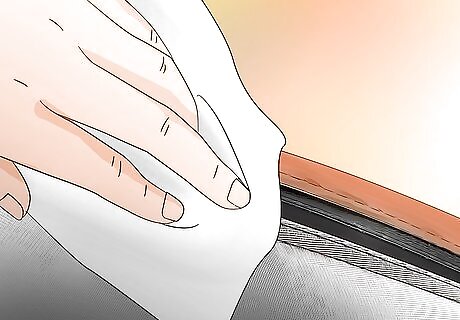
Wipe down the zipper with a clean towel after removing salt buildup. Make sure the cloth is completely clean so you don't end up clogging up the zipper further. Wipe the zipper thoroughly to remove any excess water or residue.
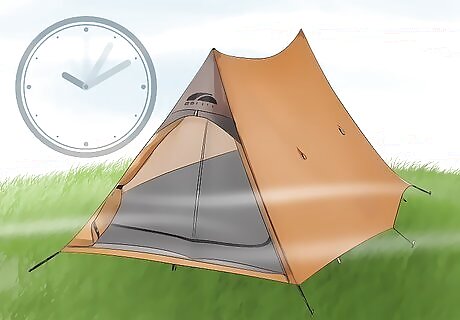
Don’t store your gear while it’s still damp. This can cause corrosion or mildew. Hang up dried garments or fold them loosely to air dry. Alternately, you can air dry items with compressed air. If your item is a tent, allow it to fully air dry before putting in a bag for storage. Don’t put tents in driers, as they can damage the waterproof coating.
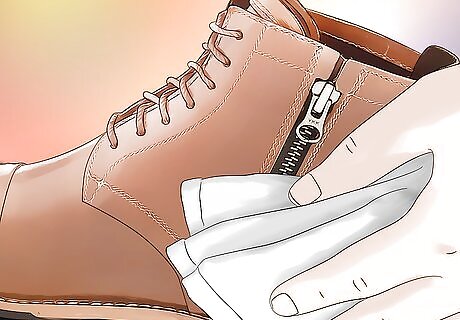
Rinse your items regularly. Wash items like drysuits after use to prevent salt residue from damaging fabric and building up on zippers. Rinse or wipe down boots well after they’ve been exposed to salt. Keep tents clean. In addition to regularly washing your items, apply a lubricant to the zippers once or twice a year.



















Comments
0 comment